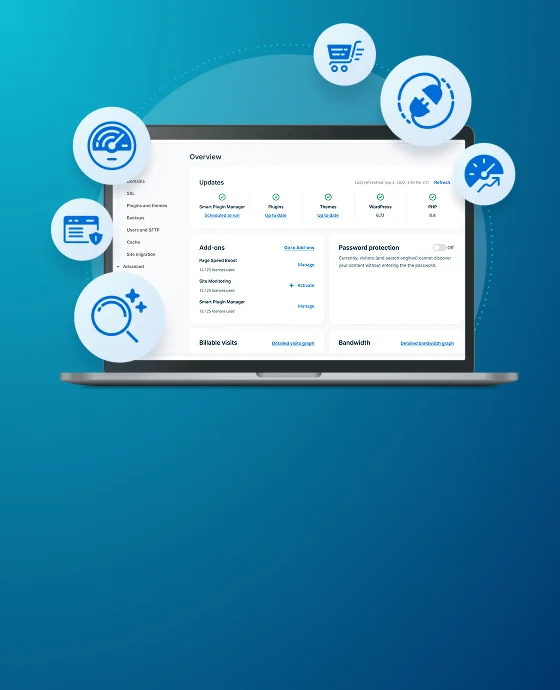Finely Tuned Consultant – Michael Martin

This weeks finely tuned consultant is Michael Martin, the developer behind ProBlogDesign.com. Michael is a designer who initially wanted to simply create an awesome WordPress design blog to share tips and tutorials with other web developers and bloggers on how to build great websites. Very quickly, the blog turned into requests to design websites for other people, and from there it has only grown.
In Michael’s own Words…
I started getting requests from people to design their websites for them, and for that reason, started offering our custom design and development services within a few months. I now work with a fantastic graphic design partner, and we have a great group of talented programmers who help us out from time to time to make sure we can always cope effectively with the workload for our clients.
Now, Michael’s answers.
When was the first time that you really got excited about WordPress and at what point did you decide to make it your career?
I started blogging about WordPress before I ever considered selling my services to anyone. Then around 3 months later, 2 clients emailed out of the blue asking if I would do some work for them. I was still in school at the time, so this was very cool.
Since then, it has just grown and grown. There was never really a sudden point where I decided I would become a WordPress Consultant, it just developed that way.
Where do you go first to get your WP news, insights, and updates?
Twitter is my favorite source of news these days. Aside from that, I love Pippin’sPlugins.com and WP Engineer for proper technical tutorials. For general WordPress news, WP Candy rocks, and the official developer blogs of course (Otto’s has always been one of my favorites).
What WP consultants deserve more love than they get? Who should we be paying attention to?
Pippin Williamson definitely. He’s been doing all sorts of great things lately, such as launching the site I mentioned above, but also developing and supporting an armada of plugins on CodeCanyon.
What performance tips would you give to other pros (as related to speed, scalability, security, plugins, backup, etc.)?
I think the number 1 tip for anyone working with clients is to educate your clients. There are things you simply take for granted (Like making backups) that just will not occur to most clients. And that’s not their fault, they’re paying you so that they don’t need to know these things.
This can be difficult when a project ends though. I don’t sell any sort of “monthly retainer” package, so I’m not constantly looking over client’s shoulders. That’s why they need to learn more about this all. Backups are useless if the client doesn’t periodically check they are still working.
Confess to us your biggest moment of WP fail?
I think the most annoying has been adding a single space to the end of the functions.php file. It hasn’t happened in a while, but a problem where the only symptom is a broken RSS feed? Spent a lot of time there before Google gave the simple answer.
The absolute biggest fail I’ve seen was with a (not to be named) hosting company though. They were charging a client a lot of money for a powerful package which included backups. When the site crashed (And everything was lost), the client was then told the backups had needed to be run manually from a control panel.
Seriously?
If you were going to spend this weekend creating a plugin that doesn’t exist, what would it be?
One script I use constantly is Slides JS. It’s a great jQuery script for setting up sliders (And it doesn’t overcomplicate things or fill itself with unnecessary cruft).
Setting it up with WordPress is easy, but a plugin to make things even faster could certainly go down well!
Do you use Themes & Child Themes, Roll your own, or both?
I’ve definitely been down this route; until last month I ran a theme shop at PliablePress.com (Now under new owners). All of our themes were based on a framework I wrote, called Chameleon (Or just PliablePress).
The sad (And unexpected) thing was that when I was making client sites, I never wanted to use the framework. I did on a few sites at first, but even though I had built it from the ground up myself, it was simply never as flexible as coding from scratch.
I think frameworks are awesome for putting out decent looking sites quickly. Our design services are quite high end though, and we design from a completely blank canvas. Frameworks just don’t seem to make sense for that approach.
What’s your favorite theme or theme framework? Why?
I don’t use any these days. The only times I recommend them to clients are when they have a very specific functionality requirement (And even then, I don’t do the actual work. I recommend the theme and suggest they find a developer that works with them).
One good example of these are the WooThemes app themes (Personally, I love FaultPress).
Favorite plugin?
Oh so many! It’s hard not to give a very common and unimaginative answer here though, like WP Super Cache. I think that is proof of how good it is though, can you imagine setting up a site without it? (Or W3 Total Cache)
A more interesting answer might be Regenerate Thumbnails. It’s a simple took that just works through all of your images, and recreates the thumbnails of them in whatever sizes the current theme uses. As a theme developer, it’s invaluable.
Least favorite plugin?
Hello Dolly…
Disqus also annoys me quite a lot at times. It’s great when it works, but a real pain when the JavaScript clashes with other parts of the site.
What’s the coolest thing you’ve ever done with Custom Post Types?
Custom Post Types are awesome, they’re just infinitely flexible! One of the most useful examples I’ve had for them is in a registration system, where each new booking could be set up as a new post in the new type, complete with their associated data. That made it very easy for the client to later go back and edit or update individual bookings.
What do you think is the biggest challenge that WP consultants will face in 2012?
I think each WP consultant has a choice to make. Being a WP consultant is no longer a niche, you need to be more specific than that.
The best example of this is being a framework developer vs. being a DIY developer. You could potentially do both, but they are such different ways of working that I believe a specialist in either area will be better.
If you could change one thing today about WP, what would it be?
I’d replace username logins with email address logins. No-one forgets their email address, but everyone forgets usernames. This is becoming standard practice with webapps, and there are plugins out there that enable it for WordPress, but I think it should be built right in to core.
Where do you see WordPress going in the next 2-3 years?
WordPress seems to be going in all sorts of directions. On one hand, it’s becoming more CMS-like with custom post types and taxonomies. On another, it’s more Tumblr-like with post formats. On another, it’s becoming more and more minimal with simplified uploads, fullscreen writing etc. And on top of that, the user interface changes all the time.
That makes it hard to guess where it’s going. I love WordPress, and I just hope that it doesn’t end up trying to do too much.
Tell us a story where you saved the WP day for yourself or on a client project. What made the difference for you?
Saving the day generally means a site has crashed to me. It’s never, ever a fun time.
I keep a copy of every theme we make though, and as long as there are backups of the content, we can put the site back together quickly. In times like this, I think speed of response are the most important things you can do.
What’s the biggest misconception you encounter about WordPress, and how do you clear it up for your clients?
The biggest confusion has be WP.com vs WP.org. Most of our clients know that webhosting is an essential part of having a website, but there are always client now and again who don’t realize they can’t host their custom site on WP.com.
Thankfully, the blog vs CMS misconception seems to happen less and less. A lot of people do still think of it as a blog first, but at least now if I tell them WP can do what they need, no-one questions it after I’ve dropped in just one or two examples.
If you were interviewing another WordPress developer for a job, what is the first question you would ask and why?
Show me some cool things you’ve made. The main thing I’m looking for here is variety; if all of their examples are normal enough blogs, then they’ve never challenged themselves. If they’re good at what they do though, then you have no idea what they might come back with.
If it’s a toss-up between 2 or more developers, I’d ask for examples of things they’ve written online. That could be a blog, or guest posts, or even just answers on sites like Stack Overflow and the WP support forums. Writing and explaining something is a really great way of showing that someone really understands what they’re doing (Rather than just managing to hack something together enough to work, or copy and paste various snippets they found online).
What did I miss? Here’s your chance to fill in the blanks and add something you want people to know about you!
The main piece of advice I’d want to give anyone is that WordPress offers you a tremendous opportunity to carve out your own way of doing things. I’m still a student (Finally about to graduate this June!), but WordPress has allowed me to work with so many clients, sell my own products, meet awesome developers, and share everything I’ve learnt along the way.
It’s well worth just diving in, and if you have an idea, run with it. Who knows what the next hit web service or plugin for WP will be?
Thanks Michael!
You all should go check out ProBlogDesign.com. It’s personally one of my favorite WordPress design blogs, and you can see examples of Michael’s design work there, should you be looking to hire him!


Thanks again for inviting me to do the interview. Really enjoyed how specific some of the questions are 🙂 (Change one thing about WP? Can be a dangerous topic 😉 )